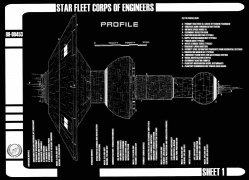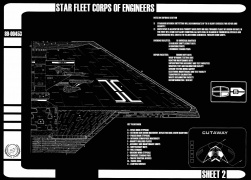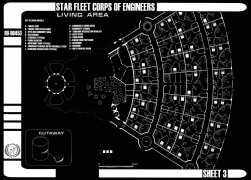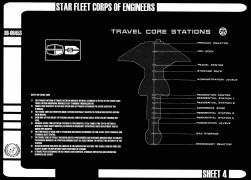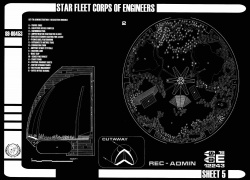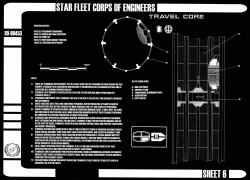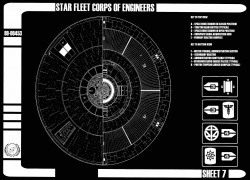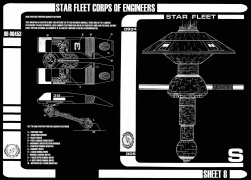Starbase 84
From Star Trek: Theurgy Wiki
Starbase-84 Blueprints
Starbase 79 Blueprints (copyright 2004) belong to illustrator Lawrence Miller and if free for viewing at [1]
History Orunal-class Spacedocks
For many years Starfleet depended on single-ship orbital platform facilities for the construction and maintenance of its starships. However, the rapid expansion of the Federation during the late twenty second and early twenty third centuries was fueling an increase in the size of Starfleet and the existing platforms were becoming unable to cope with the workload. By 2260 Starfleet was petitioning for a major new orbital facility to be built, and in 2263 it was decided to proceed with this project. The requirement was for a space station which would put all the refining, processing, manufacturing and assembly facilities required for manufacture and maintenance of starships into one place. When finished in 2274 the station was essentially a small city, dedicated to Starship production - cargo ships would bring raw materials in at one end of the line, starships would roll out at the other. This enabled Starfleet to eliminate much of the transportation requirements previously involved in starship construction; the resources saved by this centralisation covered the initial outlay for Spacedock within ten years.
Once it was realised that such efficiency savings could be achieved, it was decided to proceed with further stations in other major centers of Starship production. Starfleet has continued to add new Spacedock facilities to its inventory ever since, with the total now up to sixteen.
Over their lives these stations have seen many revolutionary changes; the advent of industrial scale replication in the twenty fourth century was a major revolution throughout the Federation and led to a major refurbishment of the manufacturing facilities on the Spacedocks. This freed up much internal volume, allowing a considerable increase in living standards for the crews. Many different sensor and weapon suites have been utilised on these stations over the years, the most recent being improvements to the shields and weapons to counter the Borg and Dominion threats. It was planned to equip all Spacedocks with quantum torpedoes in place of their photons, but the relatively limited number of such weapons available has made this unfeasible. Instead the Type IV photons have been replaced by Type VI models to give increased penetration power against heavy shielding.
During the last five years the Federation has seen a marked upswing in the level of threat directed toward it. As a result of this all Spacedock facilities have been working at maximum output in order to put as many new ships into the fleet as possible, as well as producing weapons for ground forces and other war materials. As such, these stations continue to form the backbone of the Federations war production capability.
Crew
Commanding Officers
- Captain Ian Hawthorne
Command Crew
- Chief Security Officer
- Lieutenant Komial Dothnil
- Chief Science Officer
- Lieutenant Simon Walt
Disclaimer
The technical specifications and been compiled and changed around from various sources over the web, among them Memory Alpha & Ex Astris Scientia.


